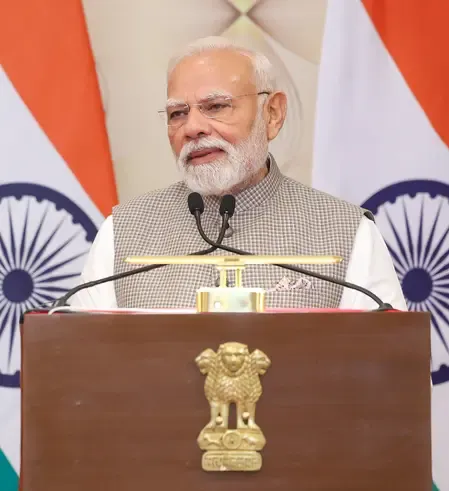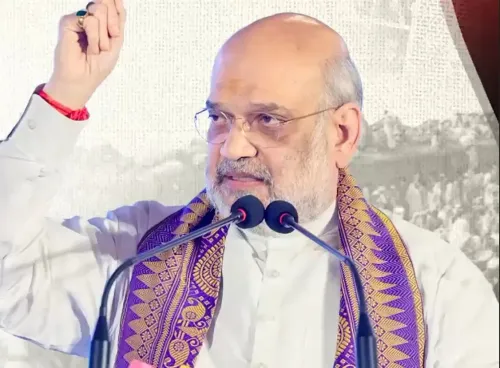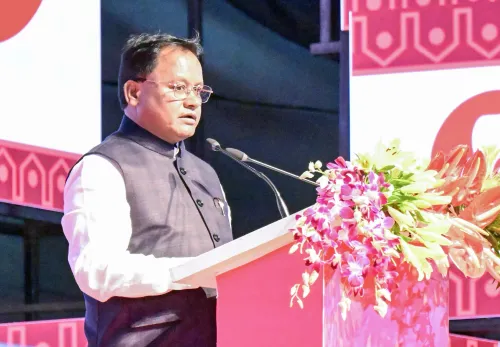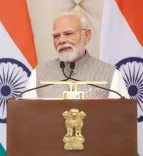Experts Confirm HMPV is Not a New Virus; Most Indians Have Immunity

New Delhi, Jan 6 (NationPress) The Human Metapneumovirus (HMPV) is not a new virus, and according to health experts, a vast majority of the Indian populace possesses immunity against it. This statement comes as the reported cases in the country have risen to three.
On Monday, health officials reported three instances of HMPV -- two infants aged three and eight months from Bengaluru (Karnataka) and a two-year-old child from Ahmedabad, Gujarat.
Dr. Harshal R Salve, Additional Professor at the Centre for Community Medicine at AIIMS, New Delhi, informed IANS, “The Human Metapneumovirus (HMPV) is not a new virus. It has been a part of the circulating flu viruses in India for an extended period. Consequently, the majority of the Indian population has developed immunity against it.”
He further noted that the likelihood of severe disease is quite rare.
Initially identified in 2001, HMPV belongs to the Pneumoviridae family, which includes the Respiratory syncytial virus (RSV). Symptoms typically linked to HMPV include cough, fever, nasal congestion, and shortness of breath.
“As with any flu virus, elderly individuals, children, and those with comorbidities should exercise caution. There is no need for alarm, and we must curb the spread of rumors among the public,” Salve emphasized.
The two cases from Karnataka were identified through routine surveillance conducted by ICMR in a three-month-old girl and an eight-month-old boy, both of whom had a history of bronchopneumonia, a type of lung infection, and were hospitalized. Bronchopneumonia impacts both the alveoli in the lungs and the bronchi.
The Health Ministry reported that while the baby girl has been discharged, the baby boy is currently recovering.
The third case involved a child from Rajasthan who was admitted to a private hospital in Ahmedabad’s Chandkheda area after exhibiting cold and cough symptoms. Reports indicate that the child is now stable.
Dr. Rajeev Jayadevan, Chairman of the Kerala State IMA Research Cell, remarked, “HMPV is not a new virus. It commonly causes colds in both children and some adults. For self-limiting colds, we do not conduct expensive tests to pinpoint the specific virus. Thus, discovering this virus during testing is neither unusual nor alarming.”
“Globally, HMPV is recognized as a frequent cause of the common cold,” he added.
HMPV is already circulating worldwide, including in India, and various countries, particularly China, have reported cases of respiratory illnesses associated with it.
“The common cold is more prevalent in winter, which is why we are seeing reports from China now. People should not assume that a new virus from China has suddenly appeared in Bangalore,” Jayadevan clarified.
Importantly, the three reported HMPV cases have no travel history, leaving it unclear if they are linked to the outbreak occurring in China.
“These infected children have not traveled to China, Malaysia, or any other country. The Chinese outbreak is connected to a new variant of HMPV. We lack complete details, and the government is still collecting information,” Karnataka Health Minister Dinesh Gundu Rao stated in a media briefing.
“HMPV isn’t new. However, we do not yet know if the strain is novel and possesses different virulence compared to previous strains we have encountered. Until we ascertain whether it is a novel strain, it is essential to recognize that we regularly detect cases,” remarked Lancelot Pinto, an Indian pulmonologist and epidemiologist, in a post on the social media platform X.
In the meantime, the government has advised precautionary measures such as covering one's mouth and nose with a handkerchief or tissue when coughing or sneezing, frequently washing hands with soap and water or using an alcohol-based sanitizer, avoiding crowded areas, and staying clear of public places when experiencing fever, cough, or sneezing.
(Rachel V Thomas can be contacted at rachel.t@ians.in)









